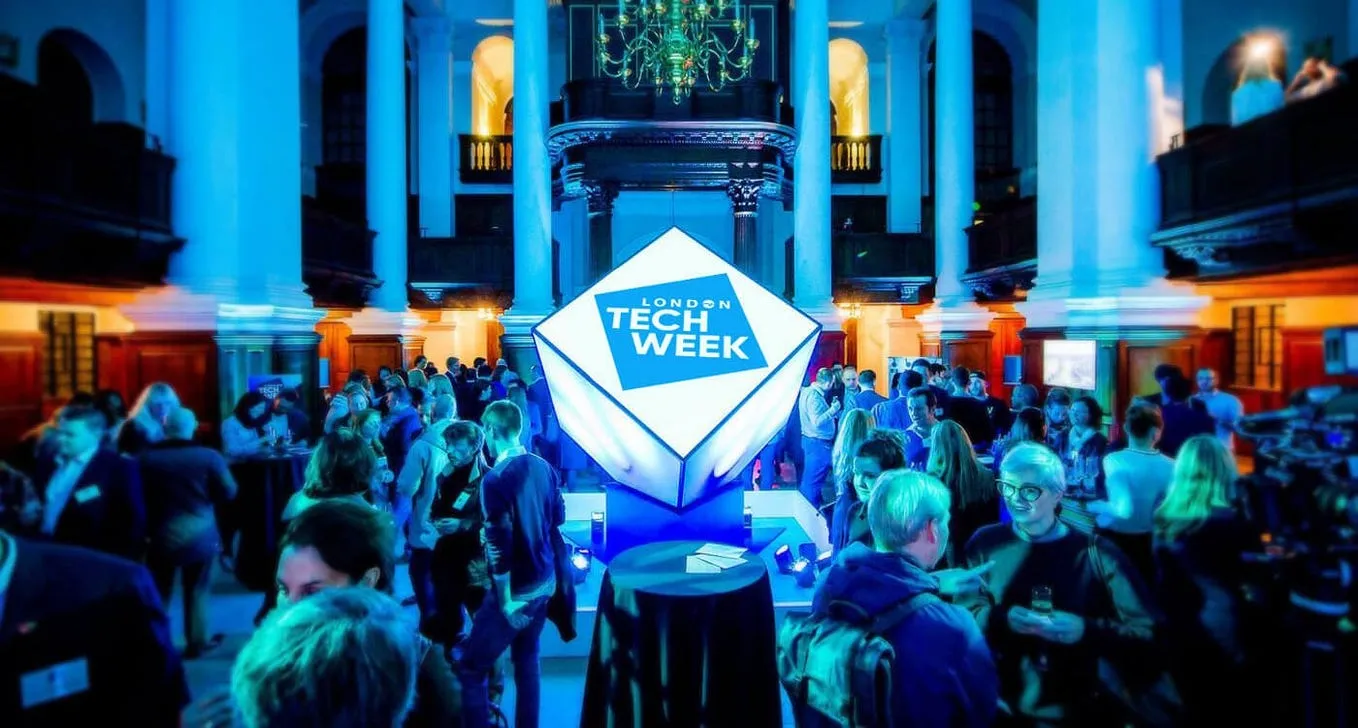Tech
London Tech Week 2025 Showcases AI Startups and Digital Health Innovation

London Tech Week 2025 marked another milestone for the United Kingdom’s growing reputation as a global technology powerhouse. The event gathered thousands of entrepreneurs, investors, and policymakers to discuss the future of artificial intelligence, digital health, and the broader innovation ecosystem. This year’s edition stood out not only for the number of groundbreaking startups on display but also for the focus on human-centered technology that aims to improve lives rather than simply automate them. As the week unfolded, the energy in London reflected a nation determined to lead the next wave of technological transformation.
The atmosphere across venues in Westminster, Shoreditch, and Canary Wharf blended ambition with purpose. More than five hundred exhibitors showcased solutions spanning healthcare analytics, sustainable fintech, and data security. Panels featuring leading voices from academia and industry debated how Britain could harness the power of AI responsibly while maintaining a competitive edge in global markets. The discussions revealed a growing consensus that innovation must serve both the economy and society, emphasizing transparency, ethics, and inclusion.
AI and the Future of Intelligent Industries
Artificial intelligence remained the dominant theme throughout the event. Dozens of startups unveiled next-generation models designed for practical, real-world applications. Several companies presented AI-driven tools for logistics optimization, financial forecasting, and environmental monitoring. Investors showed particular enthusiasm for firms focused on enterprise AI systems capable of enhancing efficiency across manufacturing and supply chain networks. Industry experts noted that the diversity of AI applications showcased this year was far greater than in previous editions, suggesting a maturing ecosystem where creativity and purpose intersect.
Among the highlights was the growing emphasis on responsible AI governance. Developers and policymakers discussed how to integrate ethical guidelines into design processes to ensure fairness, transparency, and accountability. The UK government reaffirmed its commitment to developing a global AI regulatory framework that promotes innovation while safeguarding public interest. Educational institutions such as Imperial College London and University College London announced new collaborative initiatives to train the next generation of data scientists and engineers, reinforcing the city’s position as a knowledge hub for emerging technologies.
Another key topic was accessibility. Startups demonstrated AI products aimed at improving services for people with disabilities, including voice-assisted applications and predictive health tools for early diagnosis. The success of these innovations highlighted the power of inclusive design and positioned London as a leader in socially responsible technology.
Digital Health Innovation Takes Center Stage
Digital health solutions took a prominent role during this year’s conference, capturing the attention of both investors and policymakers. Several new companies introduced medical platforms capable of using real-time data analytics to enhance patient care and reduce costs for healthcare providers. One of the most discussed advancements involved AI-supported diagnostic tools that help clinicians identify early signs of cardiovascular and neurological diseases. The integration of artificial intelligence into the National Health Service was a recurring topic in policy discussions, with experts emphasizing the importance of balancing innovation with data privacy and regulatory oversight.
Health technology firms from across Europe showcased wearable devices capable of tracking vital signs with near-clinical accuracy. These tools are expected to transform preventive medicine by giving users the ability to monitor their well-being continuously. Digital therapeutics and mental health applications also gained traction, particularly among younger audiences who value convenience and accessibility. Startups working in the wellness sector demonstrated how personalized algorithms could assist users in managing stress, improving sleep, and maintaining healthy routines.
Venture capital interest in health technology was stronger than ever. Analysts noted that over forty percent of the investment deals announced during the event were linked to health-related startups. This surge underscores the global momentum behind digital healthcare as an industry that merges profitability with purpose. With London’s strong academic infrastructure, supportive government policies, and vibrant investor community, the city has become a natural incubator for innovation that blends medicine, data, and design.
Collaboration, Policy, and the Road Ahead
Collaboration emerged as a defining theme of London Tech Week 2025. Public and private sectors joined forces to build a more resilient innovation ecosystem capable of competing with the United States and Asia. Government representatives announced new funding programs for small and medium-sized enterprises developing sustainable technologies and AI safety frameworks. The collaboration between regulators and startups was praised by participants as a model for other global tech hubs.
International partnerships also took the spotlight, as delegations from Europe, North America, and Asia signed memorandums of understanding with UK-based research centers to advance cross-border innovation. The sense of unity underscored London’s unique position as a bridge between global markets and emerging regions. As the world faces challenges in cybersecurity, healthcare, and economic inequality, the British capital continues to position itself as a place where technology can provide solutions that extend beyond profit.
Beyond the conference halls, the impact of London Tech Week extends to the broader economy. Job creation, educational programs, and urban development initiatives are increasingly linked to the annual event. Local communities benefit from the influx of visitors and the investment that follows. Tech hubs across the country, including Manchester, Birmingham, and Cambridge, have been inspired to replicate similar events, spreading innovation beyond the capital and reinforcing the UK’s role as a digital-first nation.
Conclusion
London Tech Week 2025 reinforced the city’s reputation as one of the world’s leading centers for technology and innovation. The event celebrated progress while highlighting responsibility, inclusion, and collaboration as the new foundations of modern industry. The convergence of AI and digital health showcased the UK’s ability to blend creativity with science, ensuring that technology serves humanity in meaningful ways.
As entrepreneurs, policymakers, and researchers continue to work together, London’s influence on the global technology landscape will only strengthen. The conversations sparked during the week are likely to shape the next decade of innovation, guiding the nation toward a future where progress and ethics evolve hand in hand.






















